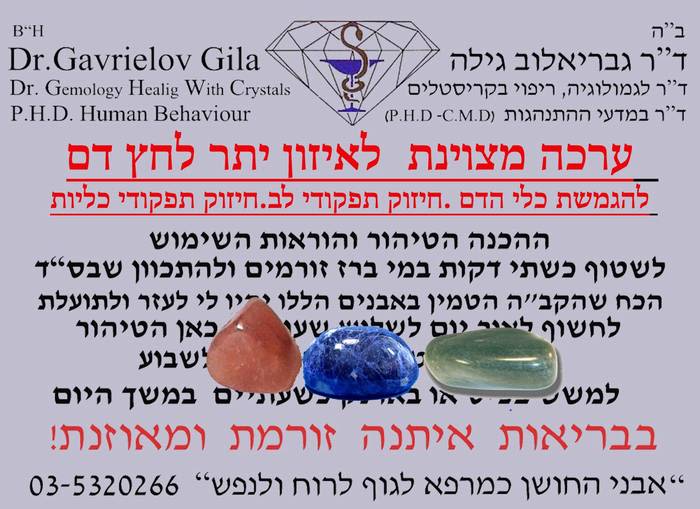
Guarding Your “I”s
Those who attribute their success to themselves ride big highs until they have a setback; then, they fall dangerously into a deep abyss. Let's put the "I" aside...

The mistake I made through my process of becoming more observant in my Judaism was the mindset that if I am keeping the mitzvoth my life will be perfect and happy all the time. Although my life improved greatly, I couldn’t understand why sometimes I didn’t succeed in what I wanted.
It happened to me a lot in the Israeli army. You feel unbelievable wearing the uniform, carrying a gun, people say thank you on the street, etc. etc. But then you get to the base and you fail at the shooting range, you forget/lose equipment or screw up during a drill. Rav Arush says, “When it’s going your way, be happy, give a lot of thanks to Hashem, and if things start losing that momentum it just means we need to get to work and grow and erase the ego that says, “I played great, I sealed the deal, I am a tzaddik, I, I, I.”
We have to remember to see the good in ourselves so if we fall, or screw up, it doesn’t mean we beat ourselves up, it means it’s time to wake up and see what message Hashem is telling us. Rav Arush explains beautifully in his book Garden of Knowledge about the verse in Genesis that says “And there was evening and  there was morning.” To summarize, the inner teaching of this verse is that before there is light “goodness” there is a period of darkness “seemingly badness.”
there was morning.” To summarize, the inner teaching of this verse is that before there is light “goodness” there is a period of darkness “seemingly badness.”
Have you ever had one of those days where everything went the way you want it? If so, then you probably wonder to yourself why other days can’t be the same. Recently in a class given by Rav Lazer Brody, he quoted Rav Arush by saying “When it’s going your way be happy (teesmach), but when not, GROW (t’zmach)!” What does the Rav mean?
Rabbi Akiva Tatz teaches that sometimes Hashem helps us succeed to show our true potential. Suddenly a person can guard his eyes, seal the business deal, or have a great day on the golf course. In his book “Living Inspired” the Rav teaches that these events show our true potential. But when Hashem seemingly hides himself aka “failure”, suddenly the man sees every women on the street or business is bad. These are simply wake up calls to show us where we are truly holding and its time to get to work, not give up.
This is something that hasn’t been easy for me to remember but I want to share what works for me after I have had a huge success (“my potential”) and then come back to reality (“my true level”). The first thing before any main test I have is that I pray for a few minutes on that subject in my personal prayer hitbodedut session. Maybe I have to teach a class or go to a meeting, or need my wife to agree with me on something. When we pray beforehand we are automatically canceling out that “I” pattern of thinking, that it all depends on me. Instead by praying beforehand we evoke help from Hashem and remind ourselves that if things don’t go the way we want, it must mean Hashem must have something better in store for us.
Another tip is when you are in conversation about something you really succeeded in, like a game winning shot, or a deal you made, or whatever it is, emphasize your gratitude and acknowledgement that Hashem really was responsible, not you. This keeps your ego in check and can also help prevent jealousy amongst people you talk with. For example, most of us might just say “I sold the property Baruch Hashem.” Although this is good, normally because we are so used to adding that little “Baruch Hashem” at the end of our sentences, we don’t really mean it. Instead, try to think about specific details on how Hashem helped. “Wow, you have no idea, Hashem somehow got me connected to this agent, who knows me personally which made the meeting go so easily, Hashem really came through for me!” When you say it like this, you are reminding yourself during the conversation that yes, thank G-d you got the deal, but really you couldn’t have done it without His help.
No one can avoid life’s pitfalls and periods of challenge even if they are keeping every letter of the law. As Rav Arush points out in The Garden of Purity, “the downfall will eventually come, you can’t escape it, the idea is to fill ourselves with Emuna to handle those times in the most productive way.” By understanding this, and remembering Hashem both in our successes and seemingly failures, we avoid inflated egos and depression, making incredible spiritual gains in our journey of living happily with emuna.











3/23/2015
Guarding Your “I”‘s Summarization
Wonderful article by my son!! In a nutshell : When you have "lemons" in your life…not only should you make Lemonade out of them but be thankful that G-d gave you the lemons in the first place! Its a win-win situation all around when you actually look at it with a positive spiritual perspective. I will aim to be more thankful of all the lemons that have littered my life forcing me to grow more enlightened and positive every which way possible.
3/23/2015
Wonderful article by my son!! In a nutshell : When you have "lemons" in your life…not only should you make Lemonade out of them but be thankful that G-d gave you the lemons in the first place! Its a win-win situation all around when you actually look at it with a positive spiritual perspective. I will aim to be more thankful of all the lemons that have littered my life forcing me to grow more enlightened and positive every which way possible.